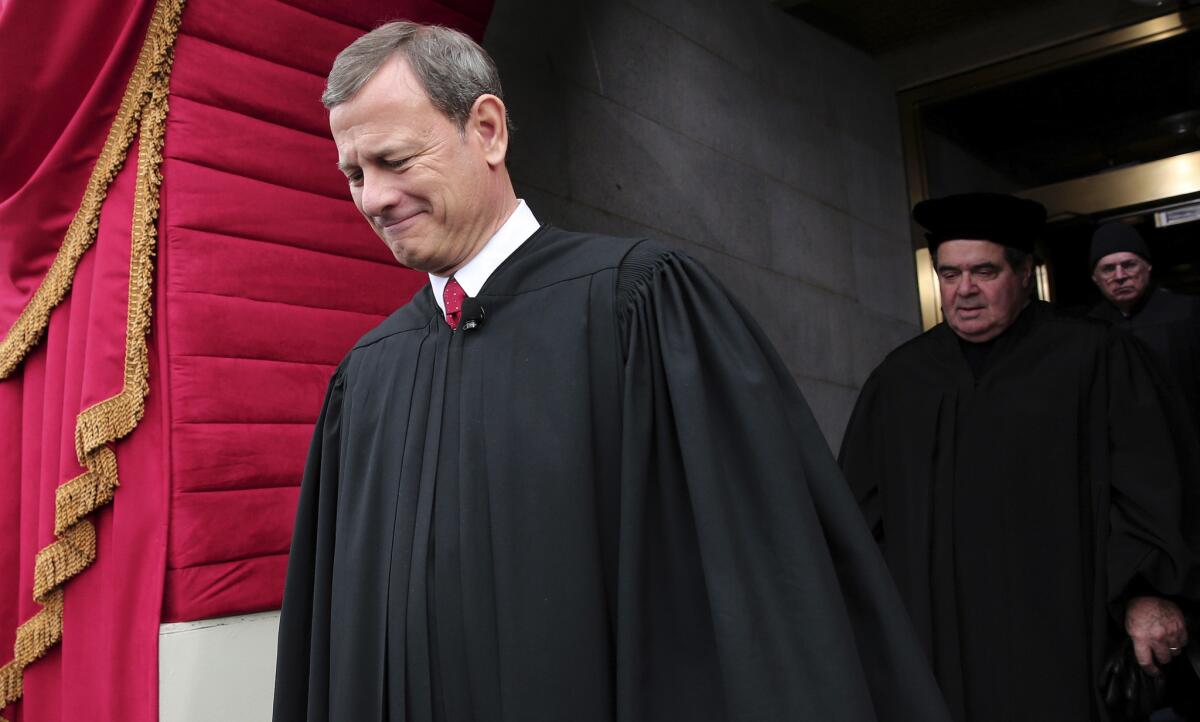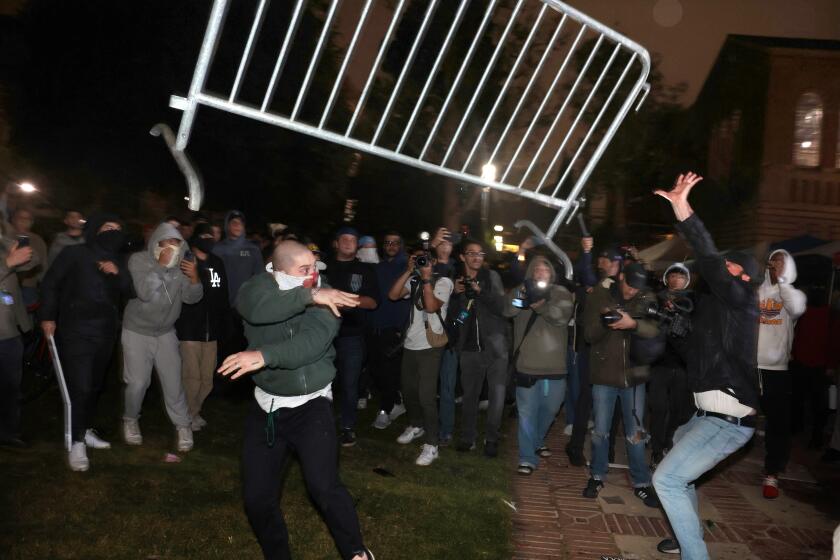Editorial: Don’t crowd the ballot with Citizens United advisory measure

Efforts are underway to attempt to overturn the controversial Supreme Court “Citizen’s United” decision. Above, Chief Justice John Roberts, followed by Justice Antonin Scalia in January of 2013.
The California Supreme Court ruled 6 to 1 this week that the state Legislature has the authority to ask voters whether the Legislature should propose an amendment to the U.S. Constitution to overturn the U.S. Supreme Court’s Citizens United decision. If you had to read that sentence twice, it’s because the ballot question known as Proposition 49 is a convoluted measure that, by the way, will have no legal or practical significance even if it is approved.
In an editorial last year, we criticized Proposition 49 as an example of “ballot bloat.” We still hold that view despite the court’s decision.
That’s not because we support Citizens United, the 2010 decision in which the U.S. Supreme Court said that corporations had a 1st Amendment right to spend unlimited funds on independent election-related activities. We criticized that decision when it was handed down (and many times since).
The problem with Proposition 49 was that it was a purely advisory referendum that would essentially have turned the polling place into a Gallup Poll, as if California voters need to further crowd a ballot already stuffed full of complicated initiatives and referendums. As Gov. Jerry Brown correctly observed, “We should not make it a habit to clutter our ballots with nonbinding measures, as citizens rightfully assume that their votes are meant to have legal effect.” (Brown let the measure become law, but without his signature.)
In its decision Monday, the state Supreme Court ruled that the Legislature acted within its power in authorizing Proposition 49. That measure, the court said, was related to the Legislature’s role in the process of amending the U.S. Constitution, whether that takes the form of applying to Congress for the creation of a constitutional convention or petitioning Congress to directly propose an amendment for ratification by the states.
Of course, the Legislature doesn’t need to ask the voters’ advice to press for such an amendment. In fact, as the court noted, in the same year it authorized Proposition 49, the Legislature also adopted a resolution urging Congress to call a constitutional convention to propose an amendment overturning Citizens United — raising the question of why it needed to ask for the voters’ views. (One cynical theory is that legislators thought the presence of the question on the ballot would increase turnout.)
It’s unclear whether the Legislature must act again to place this proposition on the ballot or whether Secretary of State Alex Padilla can do so on his own. But if Proposition 49 does make it back on the ballot, voters will not be making law if they decide to support its proposal for an amendment to overturn Citizens United and “make clear that the rights protected by the United States Constitution are the rights of natural persons only.” They will be taking part in a public-opinion poll, at taxpayers’ expense.
Follow the Opinion section on Twitter @latimesopinion and Facebook
More to Read
A cure for the common opinion
Get thought-provoking perspectives with our weekly newsletter.
You may occasionally receive promotional content from the Los Angeles Times.






